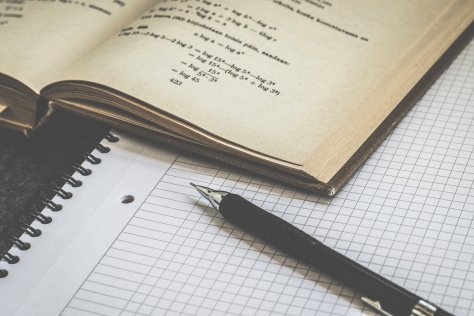
Even in the early ’60s, my mom understood the gender pay gap.
Somewhere along the way I lost interest in math. When I was a kid, I had aspirations of being an astronomer. It was not really much of a stretch given that I am the daughter of computer programmers who worked for JPL and NASA, and my mom earned her bachelor’s degree in math in the early ’60s. She once told me the story of how she had started off in engineering but switched to math after a professor proudly announced to the class that he did not given women anything more than a C because they just were not very good at engineering. I am proud of the fact that she had quite the career as a computer programmer for the American space program before leaving to have two children and eventually take on a career in teaching math and special education.
Even back in my days of science and math interest, I loved reading and writing, and somehow that won out with my academic pursuits. But something that has puzzled me more in recent years has been figuring out the point when I lost interest in math. It seems I suddenly started thinking math was too hard. At the time I did not think much of it. In fact, I had entered high school knowing that I wanted to major in English when I reached college. Despite this, I still enjoyed my math classes at the start of high school. But somewhere around sophomore or junior year that changed.
As I neared by senior year, I decided I only wanted to take calculus so I could get a high enough score on the AP exam to test out of math in college. As an English major, the AP test ended up being enough for me to fulfill all my college math requirements, and I have never taken a math class since my senior year of high school. I had a really good calculus teacher named Ms. Slack. She was no-nonsense and wore a button that had the word “whining” covered by a red circle with a slash. When I proudly told her the AP test was my ticket out of math, she smirked and told me, “Oh, you will one day decide you miss math and will come back. You’ll miss math.” Well, Ms. Slack, 24 years later it turns out you were right.
A few months ago I read Peggy Orenstein’s book Schoolgirls: Young Women, Self-Esteem, and the Confidence Gap.The book was originally published in 1995, so the girls that Orenstein studied were only slightly younger than I was at the time she went into two schools to conduct her observations. The thing that resonated most with me was Orenstein’s discussion of the hidden curriculum, which refers to the unspoken values, behaviors and norms that students learn in school. This can manifest itself in the different ways teachers respond to boys’ and girls’ interruptions in class, in how they respond to incorrect answers or other subtle ways. In reading Orenstein’s book, I began to think of how the hidden curriculum may have influenced my change in attitude toward math. It is my hope that in taking on this math project, I can also start to understand why I went from thinking math was fun and a challenge I enjoyed to thinking that math was too hard.
I am going back to algebra, a class I loved and excelled at in eighth grade. After researching some textbooks, I decided on Master Math: Algebra by Debra Anne Ross. I will work my way through the lessons and exercises in an attempt to unlock the joy I felt at solving for x when I was 13 years old. And after that I plan to move on to geometry, trigonometry and the all-important calculus. I cannot guarantee how far I will get and how long it will take me. I still have to manage my nonprofit and see to the regular demands of life. Consider it a hobby, and I will document my adventures with math from time to time here on my book blog.
The funny thing about my parents is that they were both avid readers and could write a decent sentence even though they were technical people. I suppose that is the biggest legacy they left me. I always used them as an example when co-workers tried to pawn off writing work on me because, as they said, “Oh, you were an English major, so you can write.” My parents proved that math geeks could write a sentence just as well as an English major, so now I want to prove that English majors can solve equations just as well as the math geeks.

A great blog post. I like that it points out two things: respect for your parents and the issue of gender bias. Good luck with your new hobby. I look forward to reading about your experience.